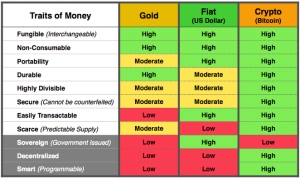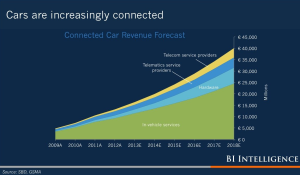The prospect of a decentralised, definitive record of ownership as introduced by Bitcoin (the technology) is something that I find hugely exciting. Does that make me a nerd? Maybe. But if you’re anything like me, on the same day that it dawns on you that this new system gives us the power to exchange value online with someone (human or machine) that we’ve not previously met without being forced to rely on a middleman, the realisation of just how disruptive such a system is likely to be across all industries starts to take hold.
I have a few personal favourites when it comes to targets for disruption but, without doubt, one is the music industry. To me there’s a particular poetry about blockchain solutions in that industry given the fact that the vast majority of the online world’s first brush with P2P technologies came from Napster or one of its descendants.
I came across a fantastic essay by Spotify’s artist-in-residence DA Wallach in which he sets out a few thoughts for how crypto-currency could revolutionise the music industry. What’s really interesting is that he doesn’t focus on the obvious advantages of the artist-to-fan internet direct distribution model that everyone knows so well. Instead he applies the power of Bitcoin (or more accurately crypto technologies in general, including Ripple) to explain precisely how this new way of thinking could immediately improve the status quo.
The music industry has its own set of problems, exacerbated by a legacy of confusing IP laws, historical land grabs by competing parties and entrenched resistance to technological innovation, as Apple proved when it decided to sneak up on the big labels and eat their pie just over 10 years ago.
In our collective rush to replace those halcyon days of album cover art with the convenience of digital music, we’re left with a confusing mismatch of precisely who contributed to each track. This has happened because the details of those that worked on each song (whether musician, songwriter or studio engineer) are kept on systems (e.g. ROVI and MusicBrainz) that (much like the banking sector) are closed, proprietary and therefore time-consuming for others to interrogate. This fragmentation of information forces digital music companies to spend time cleaning up this data before using it – and use it they must. It also makes it more difficult for musician’s unions to carry out the essential work in tracking their members’ performances.
On top of such opaque systems, the industry has layered the far more complex world of rights. Any single song can generate revenue that needs to be split and transferred to sometimes more than 20 different parties – whether these are the original songwriters, performers, publishing companies, record companies or performing rights organisations or anyone else that someone has chosen to sell their rights on to.
Let’s set aside for a second the argument that some parties will be excluded from this basket of rights in the future as the music industry evolves. Even if they remain, it’s clear that this complexity is a big issue. Look at Spotify’s model. Taking a total royalty pool, it then distributes this according to each song’s popularity on the platform. But as we’ve seen, one song does not equal only one payment.
This system is inefficient. The result is that both artists and industry members are being paid irregularly because of one simple fact: the system is not fit for purpose.
The answer? Let’s look at the blockchain. But instead of thinking about the value that is transferred upon this technology as being simply bitcoins, let’s think about transferring another type of data that’s clearly valuable. And what do we end up with?
A single global record of music data that is decentralised, open-source, global and controlled by no single entity.
On the face of it, this should be the goal for everyone unless their financial return is directly tied to the inefficiency of the existing system. Whilst previous attempts to unify records have failed, this solution is far more valuable for one reason in particular – this technology enables the automatic and guaranteed distribution of funds directly and immediately to the relevant rights holders with the minimum of human intervention (using smart contracts).
For example, one solution would be for every single song to have its own address. Spotify (in this case) would then transfer the sum directly to the address. In turn, the money (bitcoin, XRP, whatever) would then be automatically distributed according to the conditions set in the smart contracts agreed between the rights holders before the music was released.
No more artists waiting to be paid, unsure of their income. No more confusion (or misappropriation) of funds by any other party in the chain. And transparency driving bad actors out of an industry in which there has been a tradition of unfair and one-sided commercial agreements.
There does remain a question around incentivisation. How do you convince closed platforms to open up and release such data? DA suggests that, much in the same way that Bitcoin miners are incentivised to secure the network by competing for the block reward, this global record of music data could work on a model which charges for access. Those charges could then directly reward those that contributed that data in the first place. My instinct is that this model may have certain issues. But it’s beyond doubt that there’s significant value for all once the participants free this information.
DA’s view is that Bitcoin isn’t best suited for this, suggesting that Codius (Ripple’s smart contracts implementation) would be a better choice. But irrespective of the technology chosen, there’s a huge opportunity here. I know of a few crypto-focused music solutions starting to make waves (like Bittunes) and it’s definitely an area to watch in my view.
Take a blank sheet of paper. Would you choose the industry structure that we have today? Or would you instead look to technology that we now have access to? Combine a permanent, transparent public ledger that credits everyone who deserves it, a system that can automate the contractual payments that already been agreed, powered by micro transactions that can occur in real-time and – at the very least – you have a system in which artists have the potential to earn more money by doing exactly the same thing.
Now that, to me, sounds like progress.


